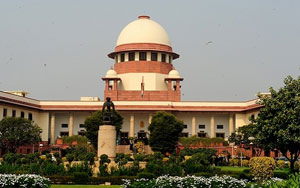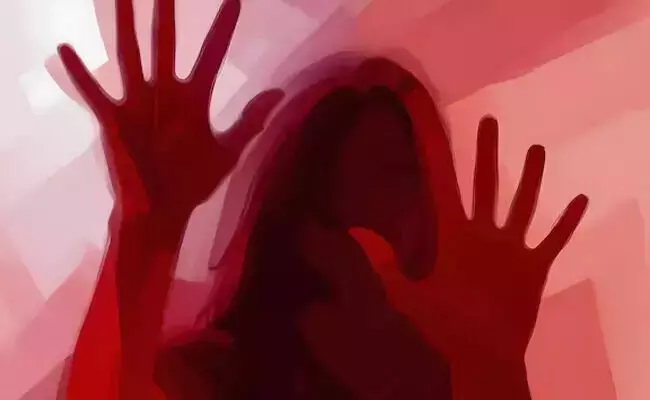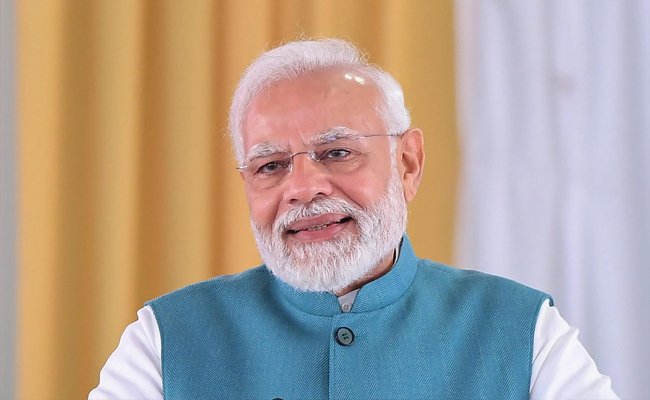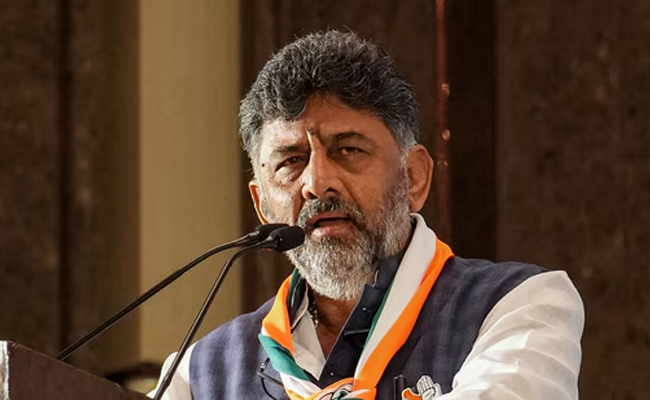NEW DELHI: Although the Hindu Marriage Act prescribes that it shall be lawful to marry again only after dismissal of an appeal filed by aggrieved party against the decree of divorce, the Supreme Court, however, clarified that second marriage would not be void if solemnised during the pendency of appeal.
Interpreting section 15 of Hindu Marriage Act, a bench of Justices S A Bobde and L Nageswara Rao said that incapacity for second marriage for a certain period of time (during the pendency of appeal against divorce )did not have the effect of treating the former marriage as subsisting and that a marriage contracted during that period will not be void because it was contracted under an incapacity.
Section 15 says when a marriage has been dissolved by a decree of divorce and either there is no right of appeal against the decree or, if there is such a right of appeal, the time for appealing has expired without an appeal having been presented, or an appeal has been presented but has been dismissed, it shall be lawful for either party to the marriage to marry again. Section 5(1) of the Act says a marriage may be solemnized between any two Hindus, if neither party has a spouse living at the time of the marriage.
The apex court set aside Delhi high court which had held that any marriage solemnized by a party during the pendency of the appeal wherein the operation of the decree of divorce was stayed, would be in contravention of Section 5 (i) of the Act. It passed the order on an appeal filed by a man challenging HC verdict which had declared his second marriage void on a plea of his second wife.
The man got married the second time when his appeal against divorce from his first wife was pending in HC. During pendency of his plea, he had settled the dispute with his first wife and filed an application for accepting the divorce and sought withdrawal of his appeal. But a fortnight before the HC passed the formal order allowing him to withdraw his appeal, he got married for the second time.
His second marriage also did not turn out to be blissful and matrimonial discord between the couple led his second wife to challenge validity of the marriage saying that it was void as it was solemnised during the pendency of case in HC. A family court dismissed her plea but the HC gave verdict in her favour and declared the marriage void.
The apex court, after hearing both the sides came to the conclusion that violation of section 15 did not render marriage void and said “if a provision of law prescribes an incapacity to marry and yet the person marries while under that incapacity, the marriage would not be void in the absence of an express provision that declares nullity”.
“The Hindu Marriage Act is a social welfare legislation and a beneficent legislation and it has to be interpreted in a manner which advances the object of the legislation. The Act intends to bring about social reforms. It is well known that this court cannot interpret a socially beneficial legislation on the basis as if the words therein are cast in stone,” the bench said.
“The dissolution of the marriage is complete once the decree is made, subject of course to appeal. This court also decided that incapacity for second marriage for a certain period of time does not have the effect of treating the former marriage as subsisting and the expression ‘spouse’ would not include within its meaning the expression former spouse,” the bench said while referring to its 1978 verdict.
“Whenever a statute prohibits a certain thing being done thereby making it unlawful without providing for consequence of the breach, it is not legitimate to say that such a thing when done is void because that would tantamount to saying that every unlawful act is void... Consequences of treating a marriage void are so serious and far reaching and are likely to affect innocent persons such as children born during the period anterior to the date of the decree annulling the marriage that it has always been considered not safe to treat a marriage void unless the law so enacts or the inference of the marriage being treated void is either inescapable or irresistible,” the bench said while quoting its earlier judgement.
courtesy : timesofindia.indiatimes.com
Let the Truth be known. If you read VB and like VB, please be a VB Supporter and Help us deliver the Truth to one and all.
Dharamsala (PTI): The countdown to save his place in the playing XI begins for a beleaguered Shubman Gill, who is likely to get three matches against South Africa to prove his worth before the Indian team management switches to a ‘Plan B’ ahead of the T20 World Cup, starting in six weeks.
As India gear up to play the third T20I against the Proteas on Sunday in sub-10-degree temperatures in the lap of the ice-clad Dhauladhar range, things are suddenly heating up in the Indian dressing room, with the prolonged poor form of skipper Suryakumar Yadav coming under the scanner.
ALSO READ: South Africa level series after de Kock special; Gill, SKY misfire again
Worse, his deputy Shubman Gill, who was pushed into the XI at the expense of a settled Sanju Samson, is not inspiring much confidence.
The South African pace attack featuring Anrich Nortje, Marco Jansen, Lungi Ngidi, Ottniel Baartman and Lutho Sipamla — has shown how to bowl on Indian tracks, and the HPCA Stadium strip, offering extra bounce and some movement off the surface, will certainly keep them interested.
ALSO READ: Messi mania grips Kolkata as thousands welcome Argentine icon at 2.26 am
Among all T20 sides, South Africa, in terms of personnel, appears to have the requisite balance to win the trophy in the Indian subcontinent this time. Quinton de Kock’s return, along with the likes of Aiden Markram, Dewald Brevis, Donovan Ferreira, David Miller and all-rounder Jansen, gives their batting an intimidating look.
With only eight games, starting from the third T20I, left before the start of the T20 World Cup title defence, India's under-fire head coach Gautam Gambhir won't be able to afford, two out-of-form top-order batters in the starting line-up.
Being the skipper of the side, Surya will certainly have immunity going into the T20 World Cup despite being completely out of form for the past one year but same can't be said about Gill, who wasn't the original choice as an opener.
Gill's entry into the T20 set-up was a classic case of trying to fix something that ain't broken and things haven't looked good so far.
In this backdrop, Gill would need to bat out of his skin to prove that Ajit Agarkar-led committee wasn't wrong in throwing Samson under the bus for one bad series against England.
The stylish Indian Test and ODI skipper will have to find his T20 game and at least score in two of the three matches if he doesn't want Samson to get his rightful place back or for that matter, find Yashasvi Jaiswal, with a fabulous T20I strike-rate of 165, enter the fray during New Zealand series.
Lack of clarity
==========
While head coach Gambhir is too proud a person to admit but sending Axar Patel as a one drop batter during the second T20I was a "tactical brain fade" from the team's think-tank.
The kind misstep that was taken with Axar's promotion is unlikely to be repeated in the third game where skipper is expected to go back to No.3 where he has got a lot of success in his first few years at the international level.
Similarly, Shivam Dube being sent at number eight due to the shuffling of batting order was another poor call which would need course correction in the next game.
Is there a place for Kuldeep Yadav?
=========================
Kuldeep Yadav is one bowler who has consistently troubled the Proteas batter but in an Indian team where batting till No. 8 is non-negotiable, the left-arm wrist spinner often finds himself getting the rough end of the stick.
At Dharamsala too, he might have to sit out as Kuldeep and Varun Chakravarthy, two non-batters can't be clubbed in the same T20 playing eleven as that would lead to compromise in batting depth.
While Arshdeep hasn't had a good series so far, it will be interesting to find if team management can find a place for Kuldeep in the playing eleven with Hardik Pandya sharing the new ball with Jasprit Bumrah.
The five-match series is currently tied 1-1.
Teams:
India: Suryakumar Yadav (captain), Shubman Gill, Abhishek Sharma, NT Tilak Verma, Axar Patel, Hardik Pandya, Shivam Dube, Jitesh Sharma (wk), Varun Chakravarthy, Arshdeep Singh, Jasprit Bumrah, Sanju Samson (wk), Harshit Rana, Kuldeep Yadav, Washington Sundar.
South Africa: Aiden Markram (captain), Quinton de Kock, Reeza Hendricks, Dewald Brevis, David Miller, Tristan Stubbs, Donovan Ferreira, Marco Jansen, Lutho Sipamla, Ottniel Baartman, Anrich Nortje, Lungi Ngidi, Corbin Bosch, Keshav Maharaj, George Linde.
Match Starts at 7 pm.





